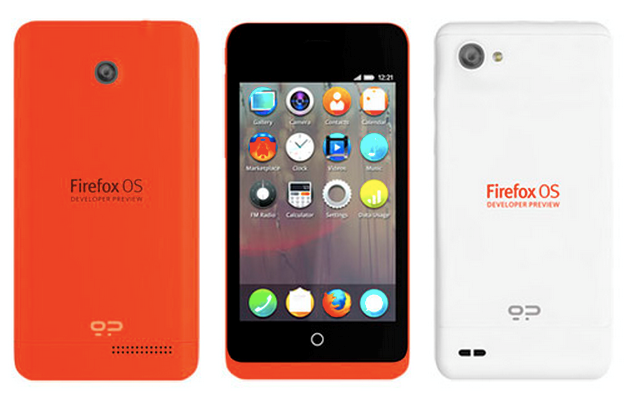Would a new mobile operating system completely based on Web standards -- theoretically allowing apps for websites to be easily ported to mobile devices using that platform -- have a chance in today’s crowded marketplace? The Mozilla Foundation is trying to find out, with its unveiling this week of two developer preview smartphones that use its new Firefox OS.
The phones, released by Geeksphone in partnership with mobile carrier Telefonica -- both based in Spain -- allow Web standards-based HTML5-created apps to have access to phone functions, such as making a phone call or sending a text. Usually, Web-based apps do not have access to device capabilities, while native apps, developed for each specific OS, do. Hybrid apps can have some degree of device-function access.
HTML5, Simulator
So, a large part of the appeal of Firefox OS for developers is that, as the Foundation points out, developers “can create an app for Firefox OS by making some small changes to your existing website” through the use of HTML5, CSS, JavaScript and new WebAPIs. The developer tools include a browser-based Firefox OS desktop simulator for testing and viewing mobile apps.

At a time when Research in Motion is struggling to launch its new BlackBerry 10 mobile platform in order to get back into a market now dominated by Google’s Android and Apple’s iOS, and when deep-pocketed, powerful Microsoft can barely get a foothold with its Windows Phone platform, does Firefox OS have a chance?
For the moment, the appeal appears to be oriented toward developers, whose support is, of course, required to create a large supply of third-party apps that make the platform useful. In addition to use on Firefox OS phones, the Web apps could also run on other platforms, although not necessarily with the same access to device functions.
The Telefonica Factor
But ease of development won’t go very far until there’s a substantial installed base of users, support by some major manufacturers, and support by carriers. Mozilla has said it's in discussions with handset makers, and has said that six other mobile carriers besides Telefonica have expressed support for the new platform, including Sprint, Deutsche Telekom and Telecom Italia.
A key factor in the success of Firefox OS could be Telefonica. Though based in Spain, the mobile carrier is extensively involved in emerging markets such as Latin America.
A Telefonica executive has told news media that the company believes smartphones based on the Firefox OS could cost as little as a tenth what an iPhone does, and could drive sales of low-cost smartphones in Latin America and other undeveloped markets.
Nokia’s abandonment of Symbian and embrace of the still-struggling Windows Phone platform leaves an opening for lower-priced smartphones in emerging markets, a space that could be filled by Android-based smartphones. But, from the viewpoint of carriers, manufacturers and developers, Firefox OS could be seen as more open than the purportedly open source Android, whose development is controlled by Google.
Keon and Peak
To complicate the opportunity, two other, new open source platforms could also offer low-cost smartphones -- Canonical’s Ubuntu for mobile, and Tizen from Intel and Samsung.
The Firefox OS developer preview models, which are expected to become available early next month, are called Keon and Peak. The lower-end Keon handset sports a Qualcomm Snapdragon S1 1GHz processor, a 3.5-inch HVGA touchscreen, 4GB of internal storage and a 3-mexapixel camera on the back.
The Peak model uses a dual-core 1.2 GHz Snapdragon S4, and features a 4.3-inch qHD screen, a 2-megapixel camera on the front and an 8-mexapixel one on the back, and 4GB of storage. Prices for the phones have not been announced, and the models are expected to go on sale early next month.
